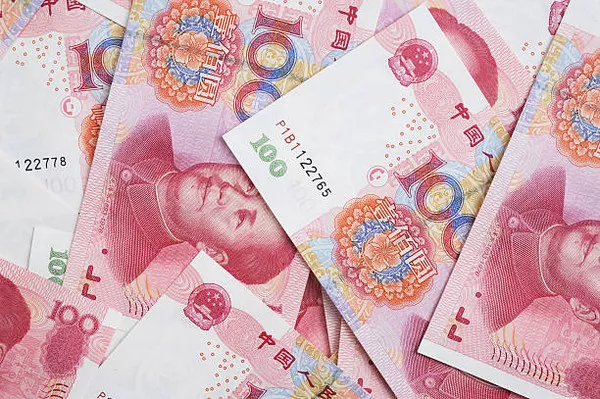In the realm of global finance, the question of whether China will replace the US dollar as the world’s primary reserve currency has become a topic of considerable debate and speculation. The dominance of the US dollar in international trade and finance has long been unquestioned, but China’s economic rise and its ambitious financial initiatives have raised questions about the potential shift in the global economic landscape. This article explores the factors contributing to this discourse and examines the possibilities and challenges surrounding the idea of China replacing the US dollar.
China’s Economic Ascendancy
China’s meteoric economic rise over the past few decades has positioned it as a formidable player on the global stage. As the world’s second-largest economy, China has become a major trading partner for many nations and a hub for international investment. The country’s Belt and Road Initiative (BRI), a massive infrastructure development project spanning multiple continents, underscores its ambition to reshape global economic dynamics.
One key factor contributing to China’s potential to replace the US dollar is the increasing use of the Chinese yuan in international trade. In recent years, China has actively sought to internationalize its currency, promoting the use of the yuan in cross-border transactions and establishing currency swap agreements with various nations. The inclusion of the yuan in the International Monetary Fund’s (IMF) Special Drawing Rights (SDR) basket in 2016 marked a significant milestone, recognizing the currency’s growing importance in the global economy.
Digital Currency and Financial Innovation
China has also taken a pioneering step in the realm of digital currencies with the development and implementation of its central bank digital currency (CBDC), known as the Digital Currency Electronic Payment (DCEP). The DCEP aims to provide a digital alternative to physical cash and facilitate more efficient cross-border transactions.
The adoption of a digital currency by China could potentially enhance the yuan’s global standing. Digital currencies offer advantages such as increased transaction speed, lower costs, and improved transparency. If widely accepted, the DCEP could challenge the dominance of traditional currencies in global transactions, including the US dollar.
Challenges and Obstacles
While China’s economic prowess and financial initiatives are impressive, several challenges and obstacles stand in the way of the yuan replacing the US dollar as the world’s primary reserve currency.
Lack of Financial Market Transparency:
China’s financial markets have historically been criticized for a lack of transparency. International investors often express concerns about the opacity of Chinese economic data, regulatory practices, and the overall governance of financial markets. Addressing these issues is crucial for gaining trust and confidence in the yuan as a reliable global reserve currency.
Capital Account Restrictions:
China maintains strict controls over its capital account, limiting the ability of international investors to freely move funds in and out of the country. The imposition of capital controls can hinder the yuan’s full integration into the global financial system, as reserve currencies are typically associated with open capital accounts.
Rule of Law and Institutional Framework:
The rule of law and a robust institutional framework are vital for the stability and attractiveness of any currency. China has made progress in improving its legal and regulatory environment, but concerns remain regarding the independence of its legal system and the overall governance of its financial institutions.
Global Trust and Perception:
The global financial system has long been anchored in the US dollar, and any shift to a new reserve currency requires a high level of trust and confidence from international markets. The yuan’s ascent faces skepticism and resistance from some quarters, and overcoming these perceptions is a significant challenge.
Geopolitical Considerations
The geopolitical landscape also plays a crucial role in determining the fate of a currency as the world’s reserve. The United States has been a dominant force in global politics, and the US dollar’s status as the primary reserve currency has been closely tied to its geopolitical influence. Any shift in this dynamic would likely be influenced by geopolitical considerations and strategic alliances.
China’s Rise and Global Collaboration
China’s rise as an economic powerhouse has not gone unnoticed, and some argue that the global community may benefit from a more diversified and balanced reserve currency system. The concept of a multipolar currency system, where multiple currencies share reserve status, has been discussed as a way to reduce dependency on a single currency and mitigate the risks associated with its fluctuations.
Global collaboration and coordination among major economies could pave the way for a more inclusive reserve currency system. This would require concerted efforts to address the challenges mentioned earlier, promote financial stability, and build trust among nations.
See Also Does China use dollars?
Conclusion
While the idea of China replacing the US dollar as the world’s primary reserve currency is intriguing, it remains a complex and multifaceted issue. China’s economic ascendancy, financial innovations, and initiatives such as the Belt and Road Initiative and the DCEP contribute to the discourse, but challenges in transparency, capital account restrictions, rule of law, and global trust must be addressed.
The future of the global currency landscape may involve a more diversified and multipolar system, with collaboration among major economies playing a pivotal role. As the world continues to evolve, the dynamics of global finance will undoubtedly undergo changes, and the role of the US dollar may be subject to reevaluation. Ultimately, the resolution of these issues will shape the trajectory of the international monetary system in the coming years.


